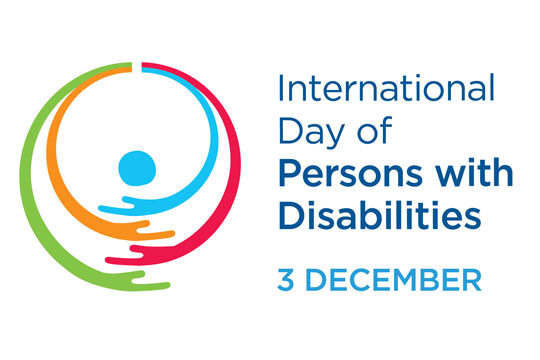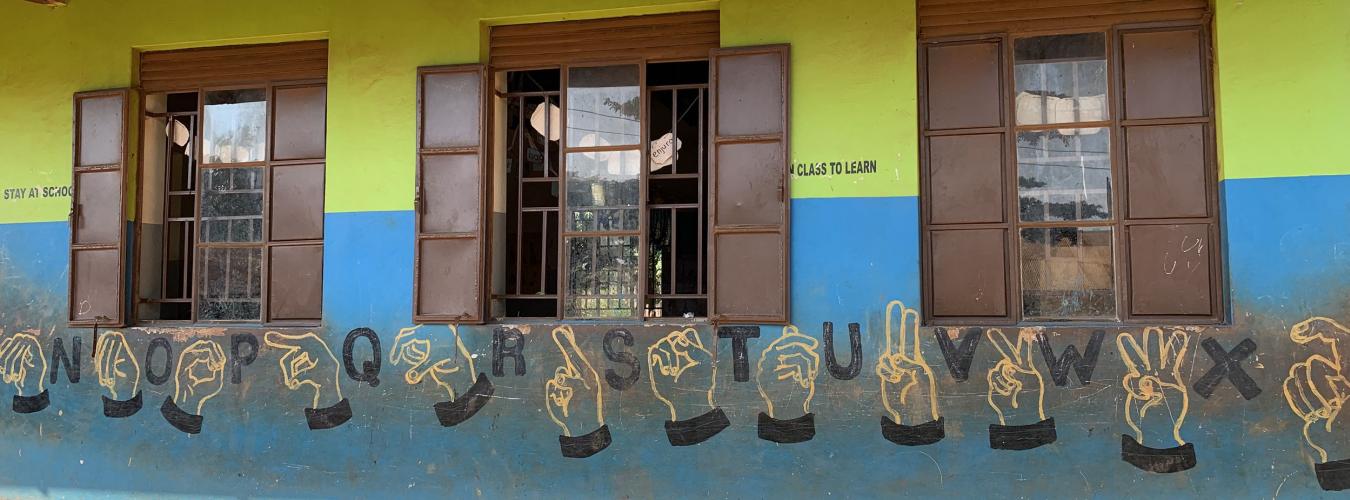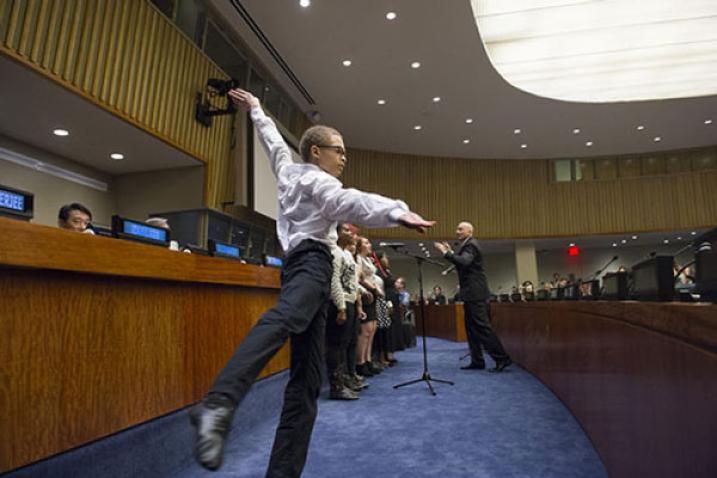Leadership and participation of persons with disabilities toward an inclusive, accessible, and sustainable post-COVID-19 world
Disability inclusion is an essential condition to upholding human rights, sustainable development, and peace and security. It is also central to the promise of the 2030 Agenda for Sustainable Development to leave no one behind. The commitment to realizing the rights of persons with disabilities is not only a matter of justice; it is an investment in a common future.
The global crisis of COVID-19 is deepening pre-existing inequalities, exposing the extent of exclusion and highlighting that work on disability inclusion is imperative. People with disabilities—one billion people— are one of the most excluded groups in our society and are among the hardest hit in this crisis in terms of fatalities.
Even under normal circumstances, persons with disabilities are less likely to access health care, education, employment and to participate in the community. An integrated approach is required to ensure that persons with disabilities are not left behind.
Disability inclusion will result in a COVID-19 response and recovery that better serves everyone, more fully suppressing the virus, as well as building back better. It will provide for more agile systems capable of responding to complex situations, reaching the furthest behind first.
The United Nations Disability Inclusion Strategy
When launching the United Nations Disability Inclusion Strategy in June 2019, the Secretary-General stated that the United Nations should lead by example and raise the Organization’s standards and performance on disability inclusion—across all pillars of work, from headquarters to the field.
The United Nations Disability Inclusion Strategy provides the foundation for sustainable and transformative progress on disability inclusion through all pillars of the work of the United Nations. Through the Strategy, the United Nations system reaffirms that the full and complete realization of the human rights of all persons with disabilities is an inalienable, integral and indivisible part of all human rights and fundamental freedoms.
In October 2021, the Secretary-General submitted his second report on steps taken by the UN system to implement the UN Disability Inclusion Strategy in 2020. Given the impact of the COVID-19 on persons with disabilities, the report also contains a brief reflection on disability-inclusive COVID-19 response and recovery.
Events organized on 3 December 2021:
- “Shaping an Inclusive Future for All: Leading with Determination”, an event organized at United Nations at World Expo 2020 Dubai.
- “Reducing Inequalities Through Technologies: A Perspective on Disability Inclusive Development”, a virtual event co-organized by United Nations Department for Economic and Social Affairs (UN DESA), the World Intellectual Property Organization (WIPO) and the International Telecommunications Union (ITU), from 8:00 to 9:30 am (NY time). Concept Note | Registration
- “Leadership of the new generations: Children and adolescents with disabilities and their voices post COVID-19”, a virtual event on organized by the Office of the Special Envoy of the United Nations Secretary-General on Disability and Accessibility, Professor Maria Soledad Cisternas Reyes, United Cities and Local Governments (UCLG) and co-sponsored by the Permanent Mission of Chile to the United Nations. Concept Note
- Celebration at United Nations Office in Geneva. Programme
- Regional Forum: Advancing Disability-inclusive Development, Bangkok, Thailand. Overview and documents
I urge all countries to fully implement the Convention on the Rights of Persons with Disabilities, increase accessibility, and dismantle legal, social, economic and other barriers with the active involvement of persons with disabilities and their representative organizations.
António Guterres

Did you know?
- Of the one billion population of persons with disabilities, 80% live in developing countries.
- An estimated 46% of older people aged 60 years and over are people with disabilities.
- One in every five women is likely to experience disability in her life, while one in every ten children is a child with a disability.
- Persons with disabilities in the world are among the hardest hit by COVID-19.
Watch
In the United Arab Emirates, persons with disabilities are known as persons of determination. "The term ‘people of determination’ centres around focusing on capabilities and empowering those with disabilities rather than focusing on their deficits”, explains Fatma Al Jassim, a disability activist who shows leadership on inclusion at EXPO 2020 and beyond
Every seventh person alive today – more than 1 billion people in total – lives with some form of disability. Despite being so numerous, persons with disabilities are still overwhelmingly overlooked in times of emergency, such as the COVID-19 pandemic. Here are five things you need to know about living with a disability during COVID-19





